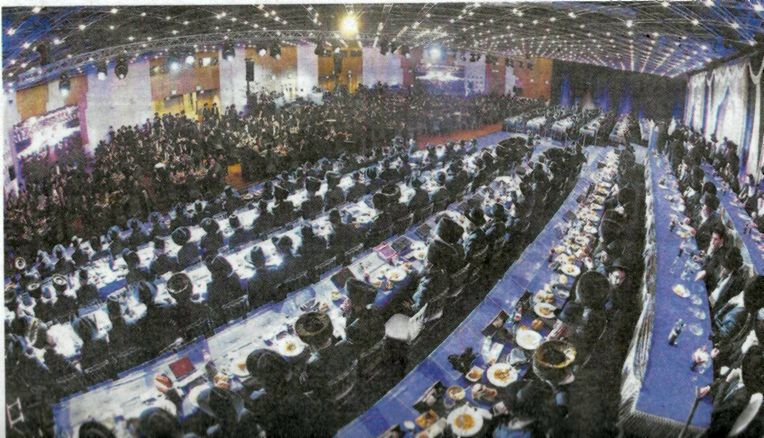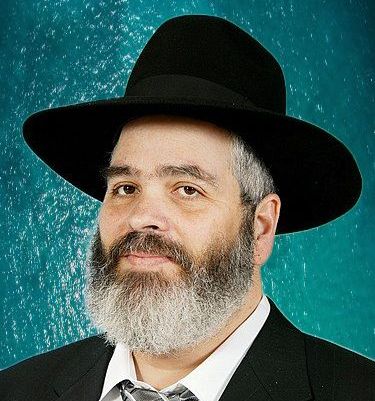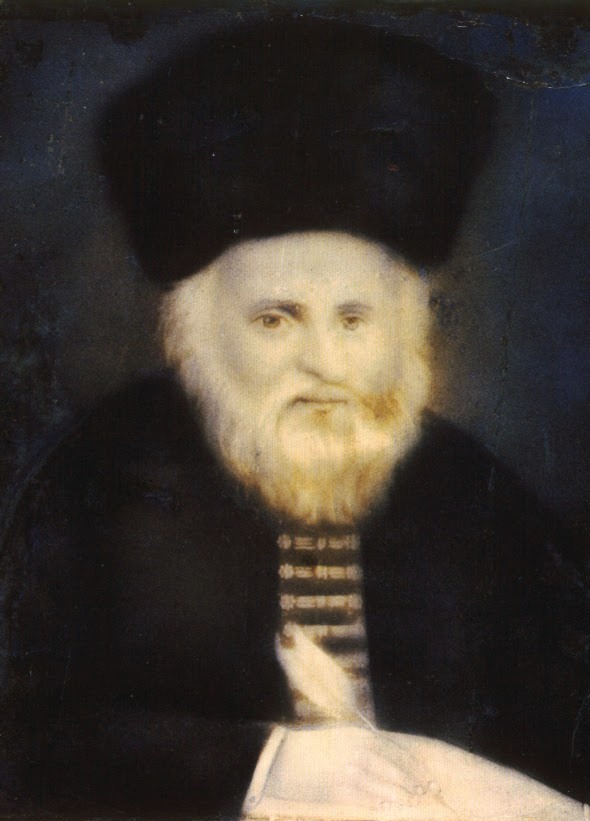  |
|
| ||||||
This Google Custom Search looks only in this website. Kinyan Halochoh Program of Dirshu
The Kinyan Halochoh program of Dirshu is a multi-year program to prepare rabbonim to be poskim. It recently celebrated the completion of a cycle. Celebrations took place in Jerusalem as well as in London and New York.
The event in Binyanei Ha'Uma was launched by HaRav Yisroel Levitt, who honored HaRav Yitzchok Berkowitz, Rosh Yeshivas Aish HaTorah, with presenting the keynote address.
He dwelt on the exactitude of language in the Rambam which implies that a person's first education begins with his father — this is the primary education, since this is study for the sake of practice, which encompasses everything.
No one was surprised by the reforms proposed by the new Minister of Justice, Yariv Levine, dealing with primary subjects relating to the legal system, and the boundaries of power of the Judicial Authority vis a vis the Knesset and the new government, which was installed very democratically by the national majority.
The first topic which Minister Levine proposed was changing the makeup of the committee for choosing judges. "The judges appoint themselves in their private chambers without any protocol," he said. "Instead, now two public representatives will be appointed by the Justice Minister instead of the sectorial representatives of the bar of attorneys. Everything will be above board through a public hearing in the Committee of Law and Constitution of the Knesset."
It was predictable. For a year and a half, quiet reigned at the town squares. The government of change and debasement, trampled upon every democratic norm. They abused the public whereby tens of thousands of families decelerated past the poverty line. They categorically ignored half of the population and they established a bloated government in all directions, its members appointing family members to all kinds of 'jobs' at the expense of the taxpayer. They brazenly and scandalously broke promises. They signed a surrender agreement without the sanction of significant public figures, and all was quiet.
As long as that government was in power, the media took a break so as not to expose any irregularities and so as to allay the public doubts of the government having stolen its power clandestinely. They may have known that the day of reckoning would arrive with the coming of the Right to power, and prepared for
This extended historical series about the battles over the rabbinate in Vilna was originally published in 1995 (5755).
Part One: The Seeds Of Conflict
Yerushalayim DeLitta
Vilna — "The Gra's Vilna," as it was known. Vilna — the capital of Lithuania — was also a capital of Torah, yiras Shomayim, kedusha and gemilus chesed. Vilna was a phenomenon unequaled anywhere else in the world in its day: a city to which no other could compare. It was the city where gedolim of the stature of the Chelkas Mechokek served as rav; the city of which Rabbi Akiva Eiger felt himself unworthy to serve as rav; the city whose very streets and houses spoke Torah; the city where every facet of Torah greatness, in both learning and deeds, was to be found.
In Vilna, one could find ordinary, everyday Yidden who were fluent in absolutely every part of Torah. One would come across a tailor who would string together several sidrei mishnayos while he threaded his needle; a blacksmith, belonging to the blacksmith's shul, who used to give a shiur that was on a par with the shiur of the rosh yeshiva of the Ramailles Yeshiva in the neighboring courtyard.
Rain and Kinneret Watch by Dei'ah Vedibur
Staff
Our weekly report of the rain and the level of the Kineret -
Winter, 5783.
* * *
Outstanding Articles From Our Archives
Chapters in Chinuch from HaRav Dessler: About the Sanctity of Expression and the Methodology of the Niggun
by L. Leiner
In two letters dealing with the subject of education, Maran's approach is apparent regarding the need to test matters of chinuch against the light of Chazal's teachings, and to be suspicious of everything smacking of modern research.
In a letter dealing with corporal punishment, Maran the Mashgiach exposes the misguided approach of modern education and forecasts the present disintegration of the system because of the basic flaw. He points out the error - which is comprised of a string of mistakes, one leading to the other. The premise of contemporary educators is that since a child is born pure and wholesome, and everything is a result of learning from the environment, any form of corporal punishment is a lesson in violence.
This negates the Torah outlook which maintains that man is born "a wild donkey" and he must be trained. He is born an egocentric creature by nature and must be tempered and tamed and inculcated with good traits through the proper education. Thus, a child does not need smacking as a negative example; he knows all about hitting and violence from his own inborn nature.
He needs to be hit as well as to be scolded in order to become submissive, in order to learn how to rein in and control himself, which is the very essence of education. The Ramchal says that the aspect of hitting is to "separate the foreskin of the heart . . . " This, however, must be the intent and one must not accustom oneself to striking from cruelty or anger, which surely cannot produce good results.
As for the educators' fear that being struck will be a negative example for a child, when the blows come from his father, the son knows that it has nothing in common with fighting, as between his peers. He knows that his father takes no pleasure in doing so, and the father's reluctance puts it in a different category of hitting.
And here the Mashgiach comes to the errant root of the generation and where it deviates from traditional education. When teachers and parents are placed on equal terms with the students/children, on par with them in order to teach them independence, then the striking of a parent is equated with the fighting between friends!
by Mordecai Plaut
If a Jew wants to solve the problem of antisemitism he must commit some kind of suicide - either physical or at least cultural. Antisemitism is part of the lot of the Jew, and it will be around as long as the exile.
If there is anyone who doubts this, they are advised to consult the beginning of sefer Shemos. "And a new king of Egypt who did not know Yosef arose. And he told his people, `Look, the nation that is the children of Israel is big and strong within us. Let us be crafty with them . . . ' And they put tax masters over them . . . And even as they oppressed they continued to multiply and expand, and they could not stand the children of Israel. And they made Bnei Yisroel work oppressively. And they embittered their lives . . . " And the next thing you know Pharaoh asked the midwives to murder the male Jewish children. (Shemos 1:8-14)
The Jews did nothing much to bring on the hatred against them. They went about their business, raised their families, participated thoroughly in Egyptian life. They just maintained their basic identity in their clothing, their language, and their names.
HaRav Shamshon Rafael Hirsch points out that if they had done anything to harm the Egyptians, it would not have been necessary to deal craftily with them.
by Rebbetzin Naomi Travis
Question: I have older children in shidduchim. I'm tired of making inquiries. Phoning the references is not always helpful. They all say the same thing - lots of adjectives. I don't even know what to ask anymore. Can you give me practical advice on how to check out prospective shidduchim for my children?
Answer:
The World to Come
We all would like to know what we will be asked when we get to Gan Eden, so we can start preparing our responses beforehand. Kabbalistic works write that after we leave this world we will all be asked the seemingly simple question, "What is your name?" and that most of us will not be able to answer.
Why will we have so much difficulty responding to this straightforward inquiry?
|
||||||




.jpg)


